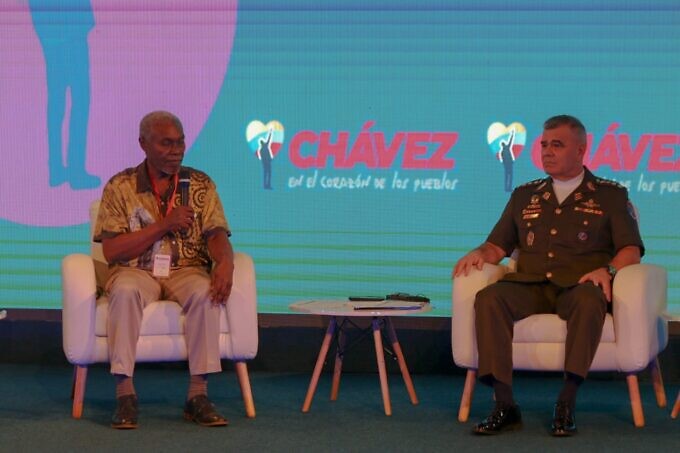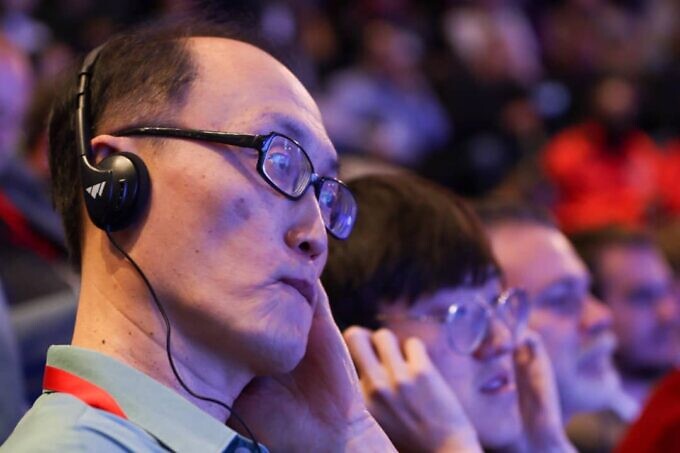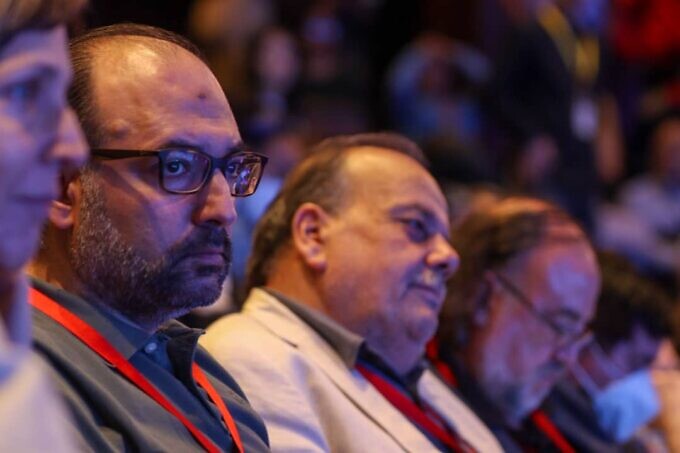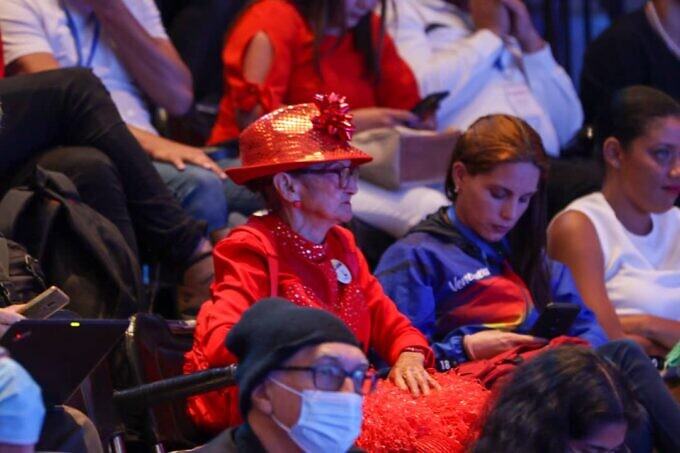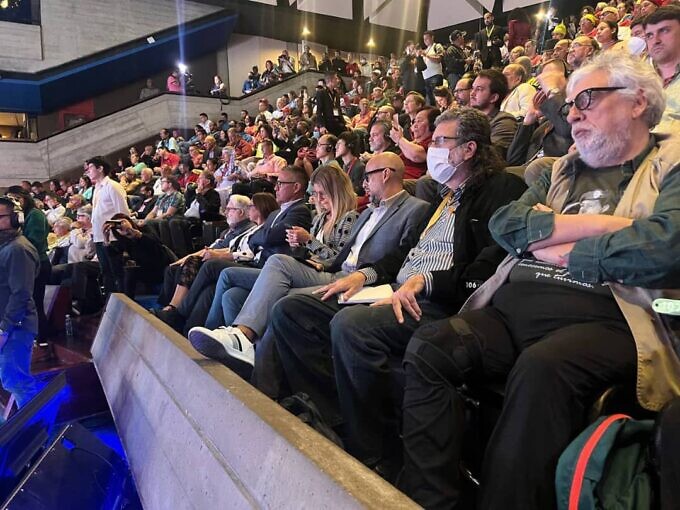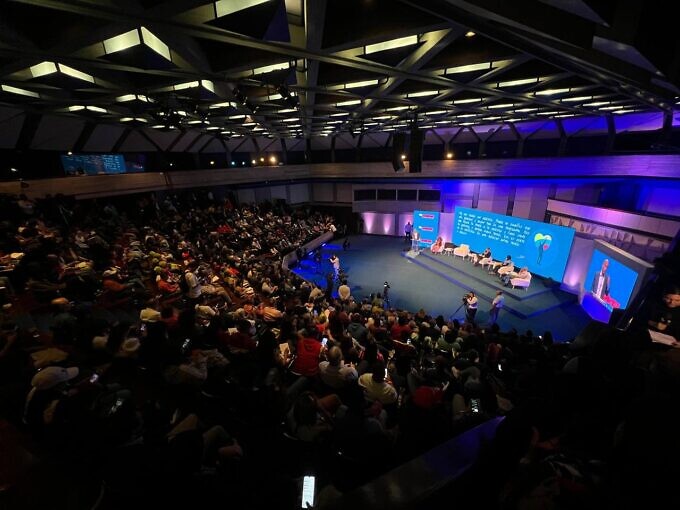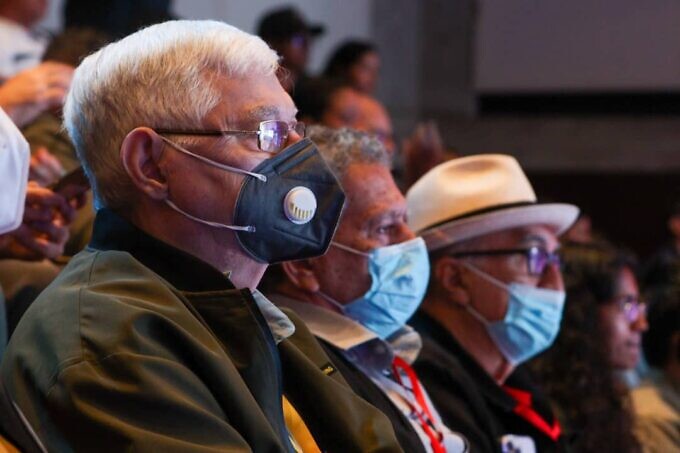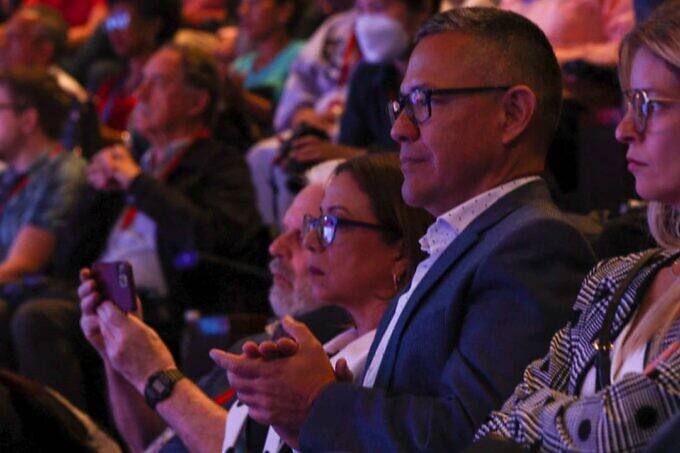World Meeting on the Validity of Hugo Chávez’s Bolivarian Thought Begins in Caracas
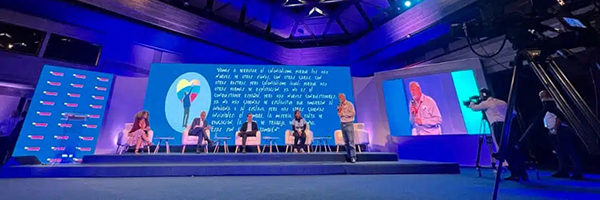 Orinoco Tribune, March 5, 2023 — On Friday, March 3, the World Meeting for the Validity of Commander Hugo Chávez’s Bolivarian Thought in the 21st century began to commemorate 10 years since Chávez’s death. Over 140 international guests from 55 countries and several national intellectuals and writers are attending. From the José Félix Ribas room of the Teresa Carreño Theater in Caracas, a series of conversations were held aimed at extolling Hugo Chávez’s historical legacy in the consolidation of socialist Venezuela and his vision of a new multicentric and multipolar world.
Orinoco Tribune, March 5, 2023 — On Friday, March 3, the World Meeting for the Validity of Commander Hugo Chávez’s Bolivarian Thought in the 21st century began to commemorate 10 years since Chávez’s death. Over 140 international guests from 55 countries and several national intellectuals and writers are attending. From the José Félix Ribas room of the Teresa Carreño Theater in Caracas, a series of conversations were held aimed at extolling Hugo Chávez’s historical legacy in the consolidation of socialist Venezuela and his vision of a new multicentric and multipolar world.
Among the invited intellectuals present at the event are Atilio Botón from Argentina, Fernando Buen Abad from Mexico, Ignacio Ramonet from Spain, Abel Prieto from Cuba, Omar Valiño, Germán Sánchez Otero, Fernando Rendón from Colombia, James Early from the United States, Vijay Prashad from India and Arnold August from Canada among other members of social and political movements, friends of Chávez in the world.
The topics discussed at the meeting, which will last until Sunday, March 5, revolve around the vision of people’s power and the commune, the democratization of the media, the civic-military union, the new multipolar world, decolonization and the validity of socialism as a model of supreme happiness in the 21st century.

Minister for Culture Ernesto Villegas accompanied the opening of the meeting, which began with the participation of the Miranda state Governor Héctor Rodríguez. As part of his welcoming words, Rodríguez outlined the battles Commander Chávez faced together with the people.
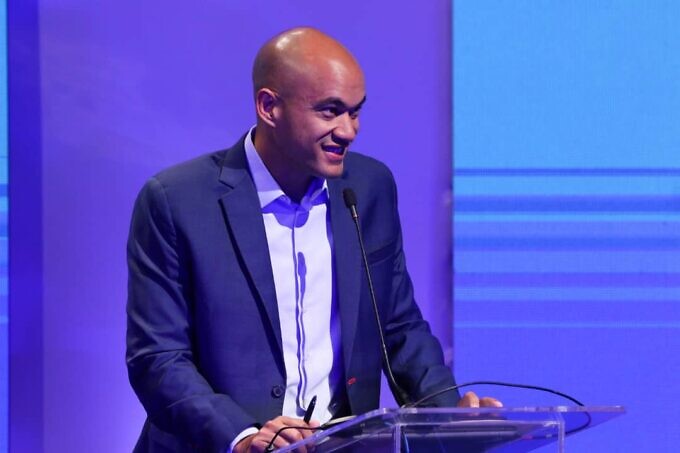
“Chávez is more than a person. He is a political project that gathers the most just causes that rise up every day with a renewing force,” Rodríguez said. He stressed that thanks to Commander Chávez, the peoples of the world have a collective conscience against imperialism and refuse to renounce the dream of sovereignty and a Great Homeland.
Rodríguez added that Hugo Chávez is one of those leaders born every 100 years. “Chávez is part of our present and future. Thanks to him, the collective effort, and President Maduro, Venezuela is reborn from the catacombs. That is the revolutionaries’ best tribute and commitment to the commander,” he added.
In the event, national and international intellectuals ratified that, 10 years after his death, Hugo Chávez is a project embodied by the peoples in resistance against imperialism.
People’s power guarantee of social happiness
At the event, the discussion “Popular, participatory and protagonist democracy” was held. Minister for the Communes, Jorge Arreaza, participated and said that Hugo Chávez’s arrival to power broke with the old way of doing representative politics. “Chávez embodied in the Blue Book a project of democracy together with the organized people’s power, participation and leadership in the forms of government action for the greatest amount of social happiness,” he said.
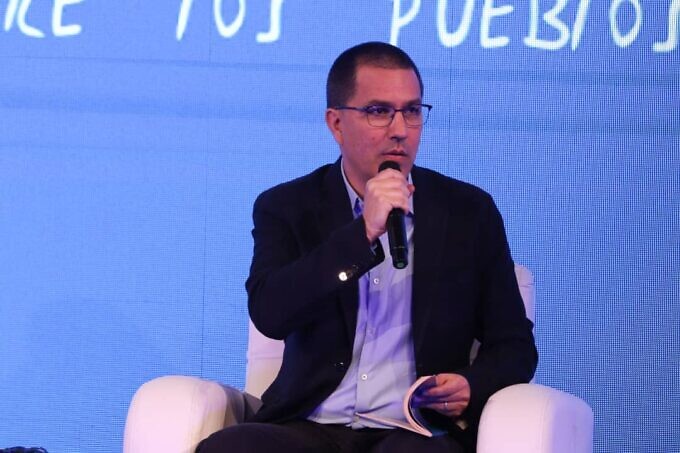
For her part, Claudia De La Cruz, from the United States, affirmed the solidarity of the social and worker movements of the South Bronx with the legacy of Hugo Chávez and the Bolivarian Revolution. “Art and culture are the keys to a revolutionary mystique that creates a freer and more democratic world,” she stressed.
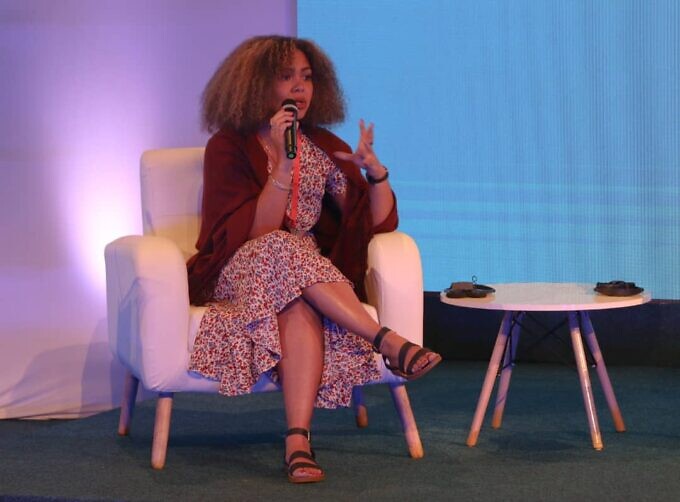
Ana Caona Marín, a member of the Commune Panal 2021 Alexis Vive, reflected that Hugo Chávez called on the people to examine in praxis the socialist spirit in the commune. “From the grassroots, we must have co-responsibility in the transformation of reality to produce wealth and distribute it in welfare for all,” she added.
João Pedro Esteves, from Brazil, recalled that Chávez was the only one who managed to regroup the forces of the Latin American left and founded ALBA against the hegemony of the Free Trade Agreement of the Americas (FTAA). “Venezuela is the continental vanguard in popular democracy,” he stated. “It is a process that Chávez began and that the peoples of our America continue.”
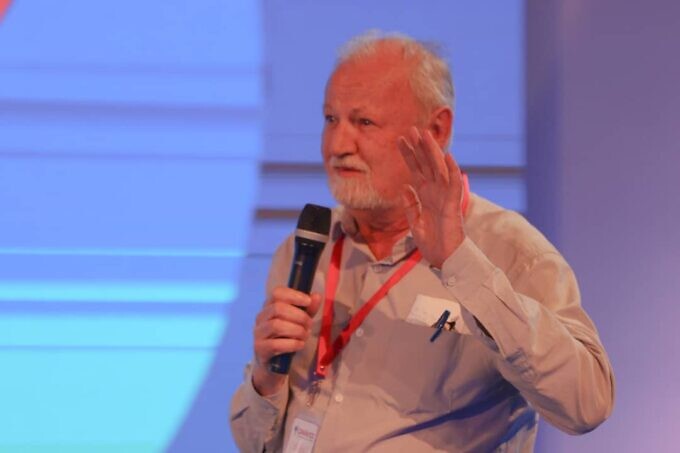
Communication battle against the siege
In another topic discussed, Venezuelan Minister for Communication and Information Freddy Ñañez stressed that Hugo Chávez’s “for now” in 1992 was the cry of hope of a people.
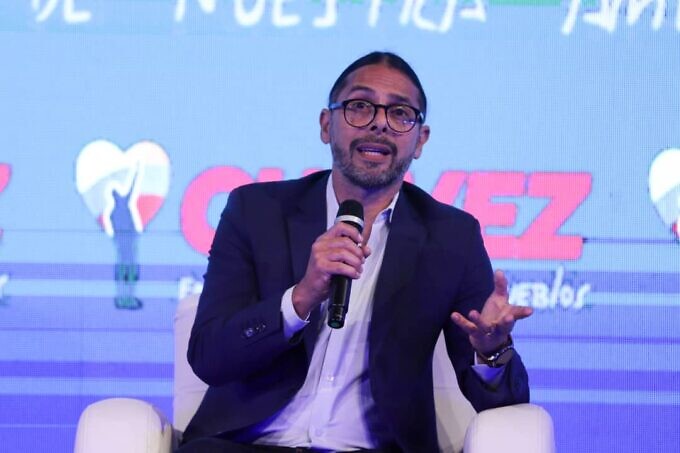
“Chávez became a great popular communicator, and from there, the communication battle was anchored in the promise of a better future. Chávez listened to an epic and heroic country,” he said. Ñañez added that vindicating Chávez constitutes valuing Venezuela’s history in these years of resistance and victory.
PSUV’s Tania Díaz referred to Hugo Chávez’s vanguard program “Alo President” as a space for ideological and pedagogical training for all revolutionaries. “We have to see ourselves as a single family in Chávez,” she said. “We are a collective formed by the Commander to overcome difficulties.”
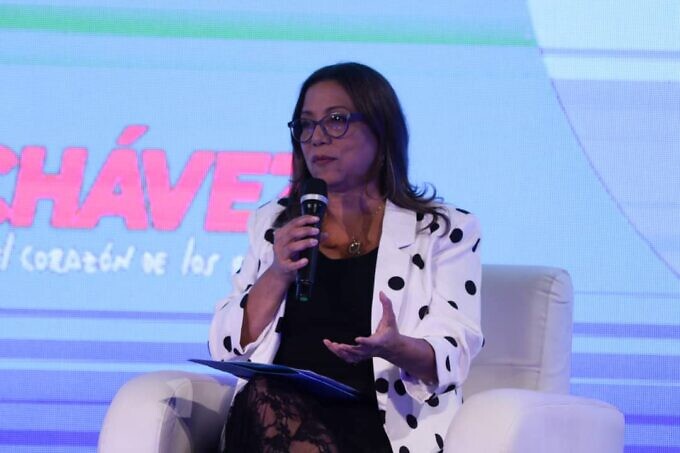
Meanwhile, Mexican writer Fernando Buen Abad highlighted the living memory of Chávez embodied in the Plan for the Homeland and in the organization of the people. “A communicational revolution is not made by a single man, but by a conscious, critical people with a socialist vision,” he said.
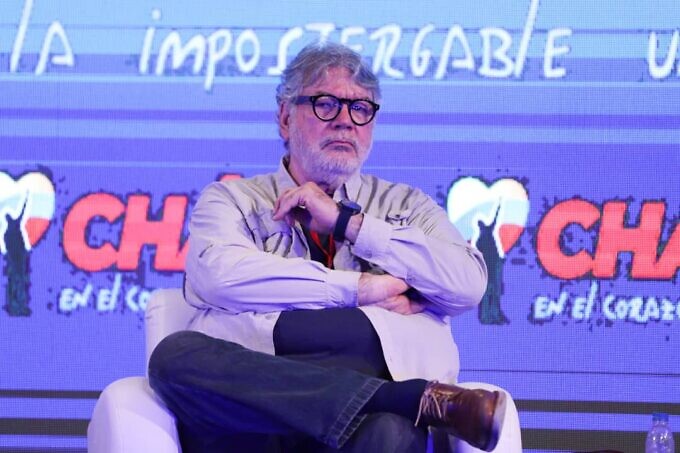
Chávez is an anti-imperialist leader
For the Spanish writer and journalist Ignacio Ramonet, Hugo Chávez is an anti-imperialist leader, as is the Bolivarian Revolution. “The imperialist project denounced by Hugo Chávez is that of globalization, of world domination,” commented Ramonet. “Through this discourse, Chávez inscribed himself contemporaneity, managing to generate alliances that have operating logics different from those of globalization dynamics, from projects of vertical domination from north to south.”
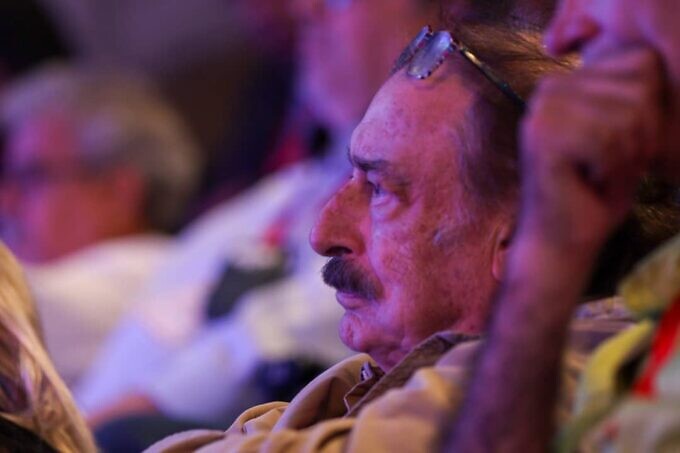
He also pointed out that Chávez opened the doors to a new international geopolitics, multiplying meetings with Arab, African and Latin American countries, creating an anti-imperial vision of oil with alliances that lead to the sovereignty and independence of the peoples. “This conception of the world makes him an original leader who sees Latin American integration as liberation and a defense against imperialism. He surprised us with his political creativity and produced deep admiration in us,” Ramonet said.
For Atilio Borón, Chávez was not only a practical but also a theoretical creator through a completely contemporary reading of Simón Bolívar’s legacy. “Chávez creates a synthesis between Bolivarianism and anti-imperialist theories, raises a banner that had been abandoned due to the dominance of the hegemonic liberal discourse. Thanks to him, talking about anti-imperialism today is legitimate in different spaces,” said Borón.
Borón showed his solidarity with the Venezuelan struggles and added that the passage of time gave Chávez’s legacy an ever greater relevance. “That is something that only great minds can achieve,” he said.

Chávez’s contributions to the civil-military union
In another of the talks held on Friday, the role of the Bolivarian National Armed Force (FANB) and its union with people’s power was highlighted. Defense Minister Vladimir Padrino-López recalled that Hugo Chávez brought back the banners of Bolivarianism and the founders of Venezuela.
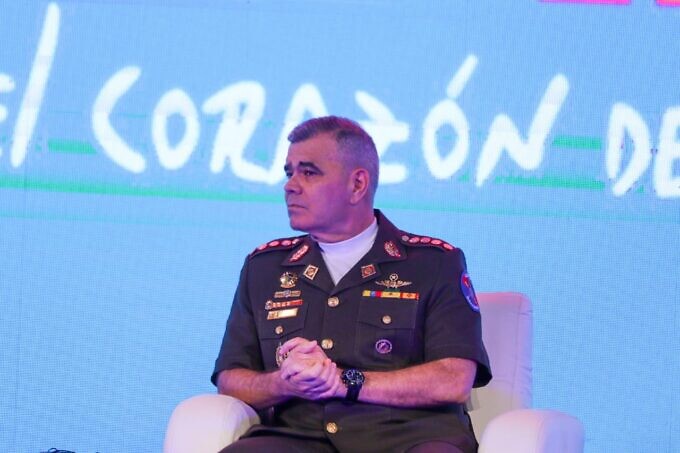
“In Venezuela, there is a compact, robust and firm people’s and military alliance, deeply defensive of the rights of the people and deeply Chavista,” he said.
Padrino-López also referred to the anti-oligarchic character of the FANB under the Zamorano and Robinsonian concept, reclaimed by Chávez. “We are a people in uniform, we owe ourselves to the people, and Chávez inserted that with his new humanist vision,” he concluded.
